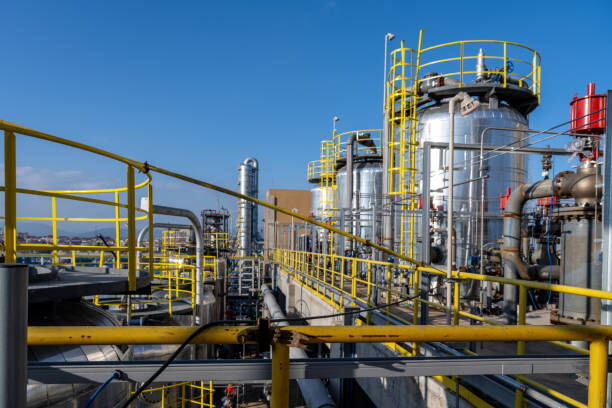Stainless Steel Control Valves: Enhancing Chemical Efficiency and Reliability
On this page
Valves play a crucial role across diverse industries and operational conditions. In the complex environment of the chemical industry, control valves act as indispensable regulators, managing fluid flow within intricate piping systems. Stainless steel, prized for its robust qualities, stands out as the preferred material for fabricating these essential components. With its inherent strength, ductility, corrosion resistance, and capability to endure elevated temperatures, stainless steel ensures unparalleled durability and reliability. It has become integral to industrial infrastructure, offering enduring performance that meets the demanding requirements of modern manufacturing and processing operations.
Valves are vital components across various applications, from power generation to water systems. Optimal performance and safety hinge on careful consideration of fundamental factors during valve selection.
In chemical applications, key considerations include the chemical properties of the medium, temperature, pressure, and the specific product handled. The valve body, plug, and operational components must withstand high temperatures and pressures, both continuously and during transient conditions. Additionally, leakage requirements specific to the field should be addressed to ensure reliable and safe operation. Choosing valves that meet these criteria ensures efficiency and longevity in demanding chemical environments.

These valves offer significant cost savings over their lifespan due to low maintenance needs and high durability. They minimize downtime and enhance productivity by reducing risks of leaks and failures in chemical processing.
With increasing focus on sustainability, stainless steel valves are becoming preferred for their eco-friendliness and resource efficiency. They contribute to reducing environmental footprint by optimizing resource utilization and minimizing waste.
Ongoing advancements in materials science and manufacturing processes are expected to enhance valve performance and functionality. Innovations will address evolving industry needs such as improved corrosion resistance and precision control.
Stainless steel control valves are indispensable in modern chemical processes, offering durability, efficiency, and sustainability. They are poised to drive innovation and support sustainable growth in the chemical industry.
This summary highlights the diverse benefits and future prospects of stainless steel control valves in the chemical sector.
Valves are vital components across various applications, from power generation to water systems. Optimal performance and safety hinge on careful consideration of fundamental factors during valve selection.
In chemical applications, key considerations include the chemical properties of the medium, temperature, pressure, and the specific product handled. The valve body, plug, and operational components must withstand high temperatures and pressures, both continuously and during transient conditions. Additionally, leakage requirements specific to the field should be addressed to ensure reliable and safe operation. Choosing valves that meet these criteria ensures efficiency and longevity in demanding chemical environments.

Valve in the Chemical Industry
Stainless steel control valves are ideal for sectors like pharmaceuticals, food, and beverages due to their ability to maintain purity and withstand rigorous cleaning. Their inert nature ensures compliance with strict industry standards, safeguarding product integrity and quality.These valves offer significant cost savings over their lifespan due to low maintenance needs and high durability. They minimize downtime and enhance productivity by reducing risks of leaks and failures in chemical processing.
With increasing focus on sustainability, stainless steel valves are becoming preferred for their eco-friendliness and resource efficiency. They contribute to reducing environmental footprint by optimizing resource utilization and minimizing waste.
Ongoing advancements in materials science and manufacturing processes are expected to enhance valve performance and functionality. Innovations will address evolving industry needs such as improved corrosion resistance and precision control.
Stainless steel control valves are indispensable in modern chemical processes, offering durability, efficiency, and sustainability. They are poised to drive innovation and support sustainable growth in the chemical industry.
This summary highlights the diverse benefits and future prospects of stainless steel control valves in the chemical sector.

